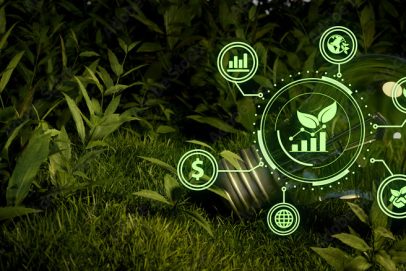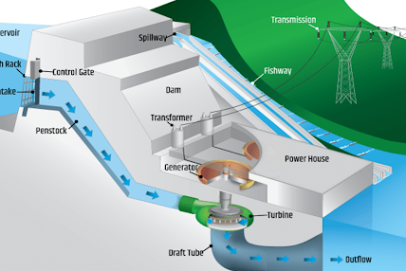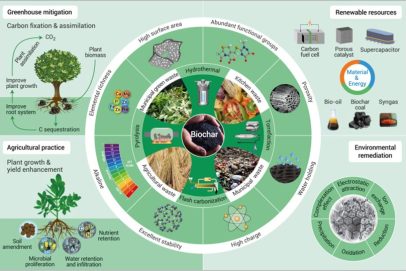Vietnam’s Carbon market roadmap
Vietnam’s commitment to sustainability became concrete when it pledged to achieve net-zero emissions by 2050 at the 26th Conference of the Parties. This conference is under the United Nations Framework Convention on Climate Change (UNFCC), a major international climate summit that was held in the United Kingdom in 2021.
To turn this pledge into action, the government is developing a national carbon market, a system that allows companies to trade carbon credits based on their emissions. This strategic move will protect Vietnam’s economic competitiveness on top of helping businesses have environmental responsibility. Export-dependent industries will continue to face increasing pressure from international buyers and policies like the Carbon Border Adjustment Mechanism (CBAM), which requires businesses to report and reduce their emissions. To support this shift, Vietnam has introduced many legal key frameworks, like the Decree 06/2022/NĐ-CP, which lays a good foundation for greenhouse gas reporting and carbon trading.
The Roadmap to 2030 & Beyond
The development of Vietnam’s carbon market is happening in phases. From 2023 to 2025, the government’s focus is on preparation. Building emission databases, creating legal guidelines, and testing voluntary carbon credit exchanges are all part of this first phase. The second phase, starting from between 2025 and 2027, Vietnam will begin piloting the new Emission Trading System (ETS), where selected industries will receive emission allowances and participate in trial trading. Lastly, from 2028 onwards, the system will officially operate nationwide, and participation will be compulsory for all businesses in high emission sectors. This timeline is a strategic move for Vietnam, and it shows that carbon management will no longer be voluntary but a regulated business responsibility.
Who is affected and the Opportunities for businesses
The carbon market will solely impact industries that release larger amounts of greenhouse gases like the steel and cement industries. Companies that emit more than 3000 tonnes of carbon dioxide equivalent each year will be required to measure and report their emissions. Exporters will face even higher expectations, especially when trading with markets like the EU, which now requires transparent emissions of data through CBAM. This means carbon reporting is no longer just an environmental activity but a trading requirement.
Despite being seen by some as a regulatory burden, the carbon market also creates real opportunities. Businesses that reduce emissions more than required can generate and sell carbon credits for additional revenue. Companies investing in renewable energy, biomass, or forest restoration can benefit financially. A strong emissions system management also helps businesses access sustainability-lined loans and attract ESG-focused investors. On top of that, suppliers with transparent and verified data will be preferred by international brands like Nike and Samsung, who now require their partners to produce emission reports.
Challenges Businesses must confront
However, the transition is not simple. Many companies in Vietnam still lack proper data systems to measure emissions accurately. Most rely on manual spreadsheets, which are prone to errors and difficult to audit. Smaller businesses also struggle to understand international frameworks like ISO14064. Without the right tools and expertise, business risk non-compliance, financial penalties or losing access to export markets.
How Businesses can start preparing
The most important first step is to develop a reliable greenhouse gas inventory. This means identifying emission sources, collecting data, and converting it into emissions figures based on international standards. Businesses should also consider picking up internal carbon pricing to prepare for future costs. Investments in energy efficiency, cleaner technology, and renewable energy will reduce emissions and operating costs in the long run. Digital software like VertZéro can support this process by automating data collection, creating audit-ready reports, and aligning with both international and local standards.
Closing message
Vietnam’s carbon market is not a distant idea; it is real and coming to us. Companies that act early will not only comply with regulations but also lead to the transition towards a low-carbon, future-ready economy. Those who delay may face higher costs, reduced competitiveness, and stricter penalties.
Managing carbon is no longer optional – it is a business strategy.
| Exclusive article
by JOO FAITH CHNG SIN – Members of the VertZéro Greenhouse Gas Inventory solution |













